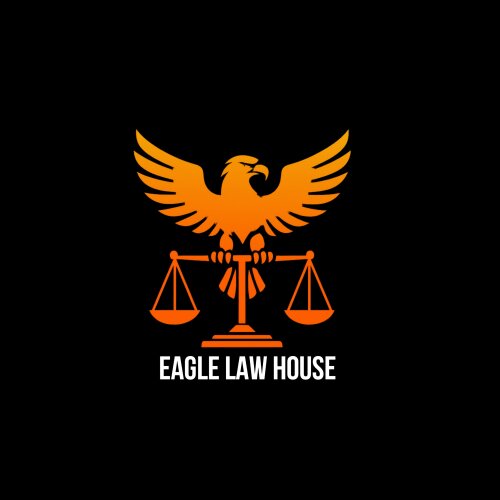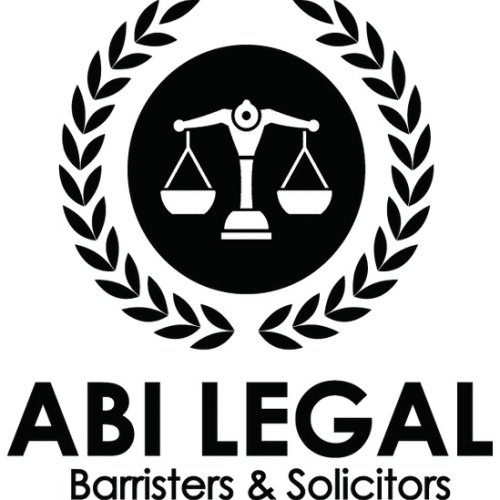Best Adoption Lawyers in Nigeria
Share your needs with us, get contacted by law firms.
Free. Takes 2 min.
Free Guide to Hiring a Family Lawyer
Or refine your search by selecting a city:
List of the best lawyers in Nigeria
Nigeria Adoption Legal Questions answered by Lawyers
Browse our 2 legal questions about Adoption in Nigeria and read the lawyer answers, or ask your own questions for free.
- Can I adopt a baby of 0 to 3 months old
- Can I adopt a baby within 0 to 3months old
-
Lawyer answer by CO-dunni Law Solicitors
Yes you can can , but it all depends on a lot of factors. Talk to a lawyer in your State.
Read full answer - Adoption process
- How can a couple adopt a child
-
Lawyer answer by CO-dunni Law Solicitors
You need to approach the ministry in charge of adoption. The State you reside would determine the Ministry to approach. You need to find a Family Lawyer near you for guidance. Talk to you soon.
Read full answer
About Adoption Law in Nigeria
Adoption in Nigeria is a legal process enabling individuals or couples to assume parental responsibility for a child who is not biologically their own. The laws governing adoption are primarily outlined in the Child Rights Act of 2003, which seeks to promote the welfare and rights of every Nigerian child. However, adoption laws can vary across Nigerian states, as some states implement modifications to the Act based on local customs and beliefs. The adoption process involves stringent legal procedures to ensure the best interest of the child, which includes background checks, home studies, and court proceedings.
Why You May Need a Lawyer
Seeking legal advice in matters of adoption is crucial to navigating the complexities of the legal process. Common situations where you might need a lawyer include:
- Navigating the bureaucratic requirements and understanding various state laws.
- Ensuring that the adoption process complies with Nigerian legal standards and the best interests of the child.
- Resolving disputes or clarifying rights between adoptive and biological parents.
- Handling international adoptions, which may involve additional legal regulations.
- Dealing with any potential legal challenges that could arise post-adoption, such as inheritance rights.
Local Laws Overview
Nigeria’s adoption laws contain several key aspects that potential adoptive parents must be aware of:
- Eligibility: Prospective adoptive parents must meet specific criteria, including age requirements (typically above 25 years old) and being significantly older than the adoptive child.
- Consent: Consent must generally be obtained from the child’s biological parents or guardians, except in the case of abandoned or orphaned children.
- Home Study: A comprehensive assessment of the adoptive parents’ home environment and lifestyle is conducted to ensure suitability for raising a child.
- Legal Adoption Order: A court must issue an adoption order to finalize the adoption, making it legally binding.
- Post-Adoption Monitoring: The law may require follow-up visits by social workers to ensure the child’s well-being in their new environment.
Frequently Asked Questions
What is the minimum age requirement for adopting a child in Nigeria?
The minimum age requirement is generally 25 years, with the adoptive parent needing to be at least 21 years older than the child.
Can single individuals adopt a child in Nigeria?
Yes, single individuals can legally adopt, but certain states may have specific restrictions or requirements.
Is international adoption allowed in Nigeria?
Yes, international adoption is permitted; however, it involves compliance with additional legal and diplomatic procedures.
How long does the adoption process usually take in Nigeria?
The process can vary widely depending on the state and specific case circumstances but generally lasts from several months to a few years.
Are there financial assistance programs for adoptive parents in Nigeria?
While there are no direct government financial assistance programs, some NGOs might offer support or resources to adoptive families.
What rights do biological parents retain after the adoption is finalized?
Once an adoption is finalized, biological parents typically lose all legal rights and responsibilities concerning the child.
What is the process for adopting a relative, such as a niece or nephew?
The process for adopting a relative is similar to adopting non-relatives, though sometimes the procedures may be expedited with proper proof of relation.
How is the adoption of abandoned children handled?
For abandoned children, the state may act as the legal guardian and consent to the adoption, following stringent investigations to confirm the child's status.
Are adoptive parents required to be residents of Nigeria?
While residency is not always a requirement, non-residents may face more stringent checks and longer procedures.
Can adopted children inherit from their adoptive parents?
Yes, once adopted, children have the same legal rights to inheritance as biological children, unless specified otherwise in a will.
Additional Resources
There are several resources and organizations that can provide assistance and information on adoption in Nigeria:
- Federal Ministry of Women Affairs and Social Development: Responsible for child welfare services in Nigeria.
- Nigerian Association of Adoption Professionals: Offers support and resources for those interested in adoption.
- Child Rights Information Network: Provides reports and research on the rights and welfare of children in Nigeria.
- Local State Offices: Each state may have an office under the Ministry of Women Affairs, handling adoption-related services.
Next Steps
If you are considering adoption and need legal advice, follow these steps:
- Research: Gather as much information as possible about adoption laws relevant to your circumstances, particularly in your state.
- Consultation: Set up a preliminary consultation with a lawyer specializing in adoption law to assess your case and get personalized advice.
- Prepare Documentation: Work with your lawyer to prepare all necessary documents required for the adoption process.
- Legal Representation: Consider retaining a lawyer to represent you throughout the legal proceedings to ensure compliance with all requirements.
- Follow-Up: Stay in contact with your lawyer for post-adoption checks and advice on matters such as inheritance and parental responsibilities.
Lawzana helps you find the best lawyers and law firms in Nigeria through a curated and pre-screened list of qualified legal professionals. Our platform offers rankings and detailed profiles of attorneys and law firms, allowing you to compare based on practice areas, including Adoption, experience, and client feedback.
Each profile includes a description of the firm's areas of practice, client reviews, team members and partners, year of establishment, spoken languages, office locations, contact information, social media presence, and any published articles or resources. Most firms on our platform speak English and are experienced in both local and international legal matters.
Get a quote from top-rated law firms in Nigeria — quickly, securely, and without unnecessary hassle.
Disclaimer:
The information provided on this page is for general informational purposes only and does not constitute legal advice. While we strive to ensure the accuracy and relevance of the content, legal information may change over time, and interpretations of the law can vary. You should always consult with a qualified legal professional for advice specific to your situation.
We disclaim all liability for actions taken or not taken based on the content of this page. If you believe any information is incorrect or outdated, please contact us, and we will review and update it where appropriate.
Browse adoption law firms by city in Nigeria
Refine your search by selecting a city.
















